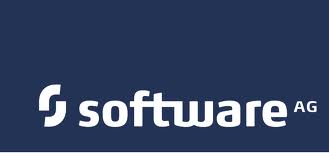This week has certainly proved an eventful one for providers of complex event processing (CEP) solutions amalgamating with large software conglomerates.
Today, international enterprise solutions firm Software AG has announced that it has finalized an agreement with Progress to purchase Apama.
Two Software Giants in Two Days
This follows yesterday’s Acquisition of StreamBase Systems by TIBCO under a very similar set of circumstances.
In the acquisition of Apama, Software AG aims to harness the performance of the company’s CEP platform and combine it with Software AG’s low-latency messaging and in-memory technology which will enable customers to gain maximum value from real-time business data in any business area where sub-second response times to events are critical, further mirroring TIBCO’s emphasis on event processing being fundamental to solving big data challenges and being a major factor in its purchase of StreamBase.
Examples of such events are fraud detection, capital markets trading or customer experience management. In addition, Apama CEP will enable customers to fully design, test, monitor and control the industrial internet to a new level of precision and at a new level of intelligence.
Apama’s three sites will be acquired by Software AG under the terms of the acquisition, which are located in Cambridge, England; Bedford, Massachusetts and Hyderabad in India.
As this acquisition comprises a full commercial takeover, the global Apama sales and technical teams which serve their extensive customer base in financial services, communications and other markets are also included.
Software AG will maintain the Apama product brand given the high brand recognition of Apama in the CEP market. The corporate synergy created by the takeover is expected to provide the resources to continue the expansion of Apama’s industry and solution focus areas, including capital markets trading, risk and surveillance, as well as more broadly location and context-aware customer experience management and fraud prevention.
“Data can lose its value in an instant,” said Software AG’s CEO Terracotta and Member of the Group Executive Board, Robin Gilthorpe in a statement released by the company today.
“Software AG’s big data technology focuses on empowering enterprises to react to complex data while that data is still live and while a reaction still has significant business impact - whether preventing fraud, increasing sales or even in saving lives. This acquisition is a major step in delivering on our strategy of empowering enterprises to derive meaningful business insights and value from big data” explained Mr Gilthorpe.
Big Data Strategies of Corporate Interest
Software AG’s big data strategy focuses on delivering real-time insights from any big data source to any type of device for immediate action. It combines in-memory data management with event stream processing and messaging to deliver real-time business insights. Software AG’s big data platform will enable a new class of applications that easily adapt to emerging use cases and new data sets.

These goals have not been achievable using traditional disk-based data management approaches. Apama is a low-latency CEP platform that fully complements Software AG’s product portfolio.
Dr. John Bates, Apama co-founder and Chief Technology Officer at Progress Software stated on behalf of the company: “Both Progress and Software AG are committed to making this transition as seamless as possible for customers and to continue providing them with the highest levels of support to which they’ve become accustomed. I will be joining Software AG once the transaction is completed and am personally committed to this transition.”
This acquisition is consistent with Software AG’s focus on expanding its dynamically growing business line for integration and process software (Business Process Excellence) in order to help customers digitize their enterprises around the "four forces": mobile, Cloud , social collaboration and big data. Software AG generated about €547 million in the Business Process Excellence segment alone in fiscal 2012. Licensing revenue in this business segment increased by 19 percent year-on-year in Q1 2013.











